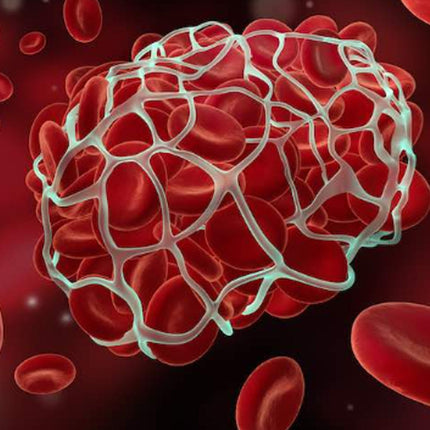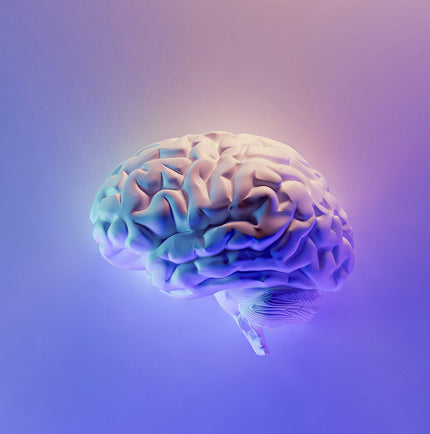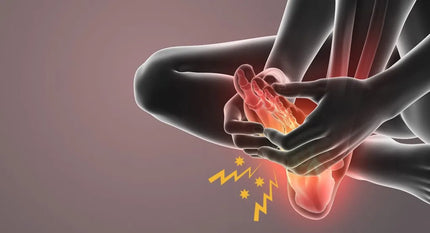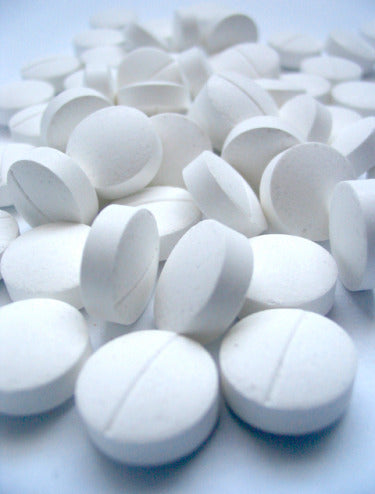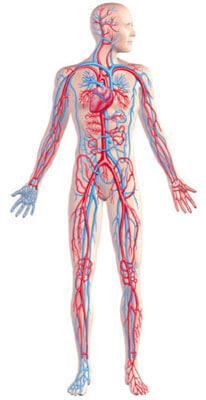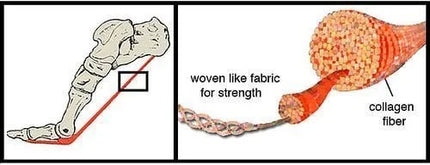Tax included and shipping calculated at checkout
Arrhythmia is a condition where the heart beats irregularly (skipped or half beats), too fast (tachycardia) or too slow (bradycardia). It can feel like light flutters starting in the left ventricle of the heart, and if the issue isn’t addressed, over time it can progress to atrial fibrillation, an irregular beat of the main atrium of the heart. This can cause a panic response with extra adrenalin and rapid heart beats. It can lead to heart attack if the condition becomes severe enough.
Heart arrhythmia indicates an electrical system problem, and can happen independently of cardiovascular disease. Insufficient magnesium is always the underlying cause. Hospitals can administer intravenous magnesium to restore blood levels, which calms the stress response by inhibition of adrenalin, restores normal rhythm and alleviates electrical disturbance. Decades of research have established that magnesium deficiency causes heart arrhythmia.
Chronic stress is usually the instigator of heart arrhythmia

The earliest symptoms of magnesium deficiency are neuromuscular symptoms, such as muscle twitching, cramps, spasms, and difficulty sleeping. Basically, they are issues related to the nervous system, electrical conductance, metabolism, control of calcium and the making of proteins – all of which must have sufficient magnesium. This makes magnesium the master mineral for life with the most jobs to do (at least over 600), yet we lose it excessively under stress. To make matters worse, in our modern world, supermarket foods tend to be magnesium depleted because they are gown in soils low in magnesium, and processing leaches out even more magnesium. It’s no wonder that the majority of people have varying degrees of magnesium deficiency.
Both magnesium and potassium are antioxidant electrolytes that work in tandem to neutralize free radicals produced as waste byproducts from mitochondrial metabolism. Both have antagonistic relationships to their counterparts; ie. potassium to sodium and magnesium to calcium, which create an electrical balance. The charge differential between these electrolytes keeps the smaller molecules of magnesium and potassium mostly inside the cell, and the larger molecules of sodium and calcium outside the cell in the extracellular spaces. Movement of electrolytes in and out of the cell membrane, which is made up of a phospholipid bilayer, is via membrane channels made of proteins.
In addition to stress, kidney dysfunction, diabetes, substance abuse, or certain medications like diuretics or stimulants, high dietary calcium and sodium intake may also cause magnesium wastage. Whilst we need these electrolytes, it’s all about the balance and ratio between them. More magnesium means you can utilize higher calcium and sodium better, rather than having them become ‘bullies’ causing havoc and over-stimulation in the electrical system. Also, if magnesium drops too low, the cell membrane charge becomes weaker, causing leakage. Not only does the cell lose hydration, but also potassium. If you lose too much potassium, it can give you a heart attack. It’s the magnesium charge that provides membrane integrity helping to hold the potassium and water in, which you need for electrical conductance.
Getting enough potassium isn’t really a problem for most people if you have a fresh food balanced organic diet with meat and vegetables, avoiding chemicalized processed foods. Mineral water also contains some extra potassium. A minority of cases may need extra potassium supplementation, and you should consult a nutritional specialist in this case. The bigger problem is in magnesium wastage via hypermagnesuria, whereby excessive magnesium is lost in the urine. Potassium declines only after magnesium is excessively lost. The body even uses calcium more optimally when magnesium is sufficient, and many have discovered that their calcium deficiency symptoms dissipate once the magnesium tank is refilled, without any extra calcium intake.

Because magnesium is the primary controller of calcium in this dance of expansion and contraction of muscles, including heart muscle, valves and the smooth muscles of the walls of blood vessels, when calcium dominates cell membranes from stress and adrenalin release, it makes the muscle fibres contract. What makes the fibres release again from the grip of calcium is magnesium moving back in to regulate the charge, returning more moisture and relaxing the muscles in the rest phase. If you are short in magnesium this transition can falter and loose rhythm, affecting electrical function. This jerky feeling of the heart rhythm can feel like a car engine out of tune and not purring or running smoothly with strength and stability.
Why magnesium tablets don’t help very much

If you are experiencing heart arrhythmia of some kind it is highly likely you have a magnesium deficiency not satisfied by diet, and likely caused by hypermagnesuria (excessive loss of magnesium via urine). If the digestive system is compromised and inefficient, which is often associated with hypothyroidism, it leads to a cascade of microbiome and gut disorders. This can result in magnesium deficiency, even if the diet is adequate.
Note that blood tests are not an accurate indicator of magnesium status in the whole of the body, because only 1% of the body’s magnesium is in the blood and 99% in muscle and bone cells, which hold a reserve storage tank of magnesium that is sacrificed to the blood to keep the blood levels stable. Once your blood shows up with magnesium deficiency it is a very critical stage. Ideally you shouldn’t let magnesium reserves get that low.
Even people with normal digestion will find that most of the magnesium in lab-made tablet formulas, together with fillers, binders, tablet coatings etc. (ie. compounds not found in nature), is wasted by the digestive system due to problems with digestion and absorption across the gut wall. The best functioning digestive systems are lucky to get only about 40% of the magnesium digested and absorbed even via the best oral supplements. When one considers those with gut disorders, the amount of magnesium getting through becomes much less.
When magnesium is intravenously administered in a hospital to treat a serious condition, it is considered to act as a ‘drug’ in this context
A hospital study in the Journal of Atrial Fibrillation noted, “The infusion of magnesium leads to a predictable decrease in heart rate and this response is independent of the other medications, but is dependent on the dosage of magnesium used.” 1 So those that received the highest magnesium infusion had the most significant result in stabilising and slowing heart beats, which was sustained for a longer period of time compared to the control group. By passing the digestive system achieves a fast result.
The same study found that the blood level of magnesium was in the normal range both the magnesium and control groups prior to their atrial fibrillation episodes. “In addition, it should be noted that the mean serum magnesium levels prior to the onset of the episode,
were within normal range for both the control group and the group of patients that received magnesium.” 1 This shows that blood serum magnesium levels are not an accurate indicator of magnesium deficiency of the whole body and the effects on electrical function.
Magnesium deficiency is also fundamental to the development of cardiovascular disease

Diets low in magnesium were found to significantly increase the risk of developing CVD (cardiovascular disease). According to a meta-analysis: Magnesium and the Risk of Cardiovascular Events, “A significant association was found between dietary magnesium and total CVD events risk in the nonlinear model. The greatest risk reduction was observed when dietary magnesium intake increased from 150 mg/d to 400 mg/d. An increase of 0.1 mEq/L in serum magnesium concentrations was associated with a 9% decrease in the risk for total CVD events. Analyses stratified by individual CVD outcomes suggest that adequate dietary magnesium intake reduces the risk of stroke, CHD, and CVD death equally. ” 2
The ‘dietary magnesium’ that is referred to involves the absorption of naturally available magnesium salts in food and water, rather than lab-made magnesium tablets, which are more difficult to digest and absorb. Even the use by hospitals of magnesium salts via infusion to treat heart arrhythmias and atrial fibrillation, defines the use of magnesium in that context as a ‘drug’. In other words, it’s not how you normally receive magnesium nutrition, but it can save lives in critical situations by bypassing the digestive system to speed up delivery of magnesium to the blood.
Ideally you can avoid the march towards critical cardiac events and hospitalisations by ensuring an adequate daily supply of magnesium in its natural salt form.
RECOMMENDATIONS: Magnesium Chloride Hexahydrate (Salt Flakes) does not require digestion once dissolved. Transdermal absorption daily can supply high-end magnesium needs

Magnesium chloride is a naturally occurring salt found in the earth’s surface waters and crust, and once dissolved, is easily incorporated into plants and animals. Once dissolved, it can be taken up by cells without further digestion. This is what makes it so superior to artificially made lab compounds of magnesium. You can soak up magnesium ions via magnesium flakes in a bath or footsoak and feel the calming difference straight away. It’s super relaxing and promotes better sleep.
Everyone is different and may need different amounts to top up their magnesium reserves. If you have high-end magnesium needs, for example 1000mg or more day, you will more likely get to this amount with a combination of magnesium chloride containing products. For instance, magnesium soaking with Magnesium Flakes for half an hour can give you 250-350mg extra. Each teaspoon of Magnesium Cream provides 150mg magnesium, each teaspoon of Magnesium Charge Lotion provides 300mg of magnesium, and each 6 sprays of Magnesium Oil Spritz provides 300mg magnesium. If you drink Magnesium charged electrolyte water (about 10 drops per litre filtered water) at over 2.5 litres a day, that’s about 200mg of magnesium.
You can work out your individual needs by experimenting with what you like to use daily, and monitor your body’s responses as to how much or what combinations are making you feel better. Week by week the body starts to refill its cellular reserves of magnesium till you feel stronger and more stable on the inside.
You shouldn’t really be consciously aware of your heart beats (unless in fight or flight stress) if magnesium levels are optimal. If you are in a resting position and aware of flutters or irregular beats, then you know magnesium is way too low and your tank needs to be refilled.
Magnesium makes us more resilient and better able to cope with stress, but it can take weeks or months, and even years in some cases, to reach optimal levels. The body replenishes bit by bit and recovers at its own pace, but the incremental improvements are so welcome! All we have to do is supply the body’s needs. More information is on our Magnesium Dose Guide: https://www.elektramagnesium.com.au/faq/
By Sandy Sanderson ©2025
REFERENCES
(1) Bhatti, H.; Mohmand, B.; Ojha, N.; P Carvounis, C.; L Carhart, R. The Role of Magnesium in the Management of Atrial Fibrillation with Rapid Ventricular Rate. J Atr Fibrillation 2020, 13 (4), 2389. https://doi.org/10.4022/jafib.2389.
(2) Qu, X.; Jin, F.; Hao, Y.; Li, H.; Tang, T.; Wang, H.; Yan, W.; Dai, K. Magnesium and the Risk of Cardiovascular Events: A Meta-Analysis of Prospective Cohort Studies. PLOS ONE 2013, 8 (3), e57720. https://doi.org/10.1371/journal.pone.0057720.








